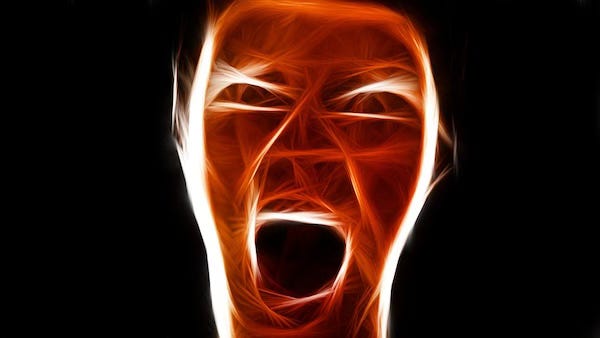Anger is a big deal for the Stoics. Seneca wrote a whole book about it, and it is still just as good—if not better—than the advice you find on the anger management site of the American Psychological Association.
The basic idea is that anger is one of the pathē, or unhealthy emotions, as distinct from the eupatheiai, their healthy counterpart, an example of which would be love for the proper objects or people (like virtue, or your children). In Stoic psychology, what makes an emotion unhealthy is the fact that it overrides reason, and nothing does that to the degree of anger.
I have written about anger rom a Stoic perspective before, and my experience is that a good number of people get really angry when they read something like what you are about to read. So, be forewarned!
The occasion to revisit this always controversial topic is an article published in the New York Times by Christina Caron, entitled “Don’t Shut Down Your Anger. Channel It.” It begins with what is now becoming a standard line in certain quarters: “There is an upside to feeling angry.” I doubt it, but let’s see.
Caron’s first volley is rather unconvincing. She tells us that recent research, published in the Journal of Personality and Social Psychology, shows that anger is more of a motivator for people than a neutral emotional state. Well, yeah, but that’s like saying that homeopathic pills are more effective than drinking water. They are, because of the placebo effect.
The proper comparison, I would have thought, should be between anger and other mental states that are known to be, or at least potentially may be, psychological motivators. For instance, what happens if one compares anger at an injustice against a well nurtured and developed sense of justice, which the Stoics class under the eupatheiai? Here is how Seneca puts it:
“‘What, then,’ asks our adversary, ‘is a good man not to be angry if he sees his father murdered or his mother outraged?’ No, he will not be angry, but will avenge them, or protect them. Why do you fear that filial piety will not prove a sufficient spur to him even without anger?” (On Anger, 1.12)
How did the researchers in question discover that anger motivates more than not feeling anything? As is often the case in social science, by recruiting a bunch of undergraduate students, in this case at Texas A&M University, and getting them angry by showing them images insulting their school. This, apparently, helped them solve some puzzles.
Keep reading with a 7-day free trial
Subscribe to Figs in Winter: a Community of Reason to keep reading this post and get 7 days of free access to the full post archives.



